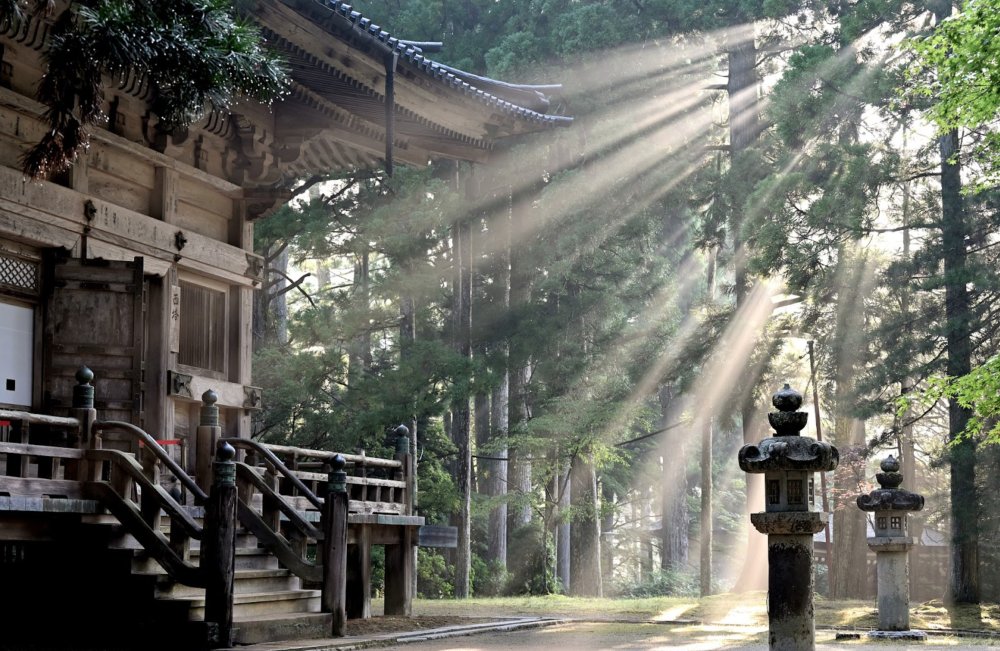What Makes Japan Such a Unique and Special Country?
March 23, 2023
Japan has long had a reputation for its unique traditions and distinctive culture. It's an island nation that's got a long history of isolation which means many cultural aspects have developed completely unaffected by any outside influences. The Shinto religion and its thousands of beautiful shrines across the country is one example.

Ancient Shinto shrines are a unique feature of Japanese culture.
There are ways you can try to replicate the Japanese experience, such as buying products from a Japanese online store. But the only way to get a true feel for the country is to spend some time there.
Let's take a quick look at the main reasons Japan stands out from other countries.
Friendly People
Ask anyone who's visited Japan about the people and most will tell you that the Japanese people are super friendly.
Japan is known for a rather insular outlook on foreigners, but that's not always the case. It's not unusual for visitors to be given free food and drinks, and to get a real sense of belonging.
Even something as simple as asking someone for directions will most likely have them going above and beyond to try and help.
Definitive Seasons
Each one of Japan's seasons is distinct. One season doesn't blend into another like many other countries. Japan benefits from four natural changes every year.
During the winter, there is an average of 300-600 inches of snow. This makes it one of the snowiest places on the planet and somewhere you can enjoy the best skiing.
Spring is possibly the most popular season because of the world-famous cherry blossom that is found in full bloom across the country.
Believe it or not, the summer months are unbelievably hot, especially in the bigger cities. However, Japan has some incredible beaches where you can enjoy the heat in relative comfort. Head for Okinawa where there are some of the best sandy beaches and crystal-clear waters.
Dedication to Customer Service
Enter a shop in Japan and you'll be treated to world-class customer service and dedication to getting the job done. Japanese hospitality is by far some of the best in the world.
One example of the Japanese dedication to customer service is the phrase "Irasshaimase!" This is something you'll hear in retail shops, cafes, and restaurants. Literally translated, it means "Welcome to my shop/restaurant/cafe." It's usually said with an upbeat, loud voice.

Japanese workers are taught that the customer is to always be treated with respect and a smile.
The Blend of Modern Technology and Traditional Culture
What do you imagine when you try to picture Japan in your head? Most likely it will feature bright, neon lights, garish signs, and a general visual overload. While this is a true picture, you should also be picturing a zen-like countryside, ancient temples, bamboo forests, and a slower pace of life.
A beautiful concoction of both is what makes Japan, Japan. It's a country that manages to successfully blur the line between traditional and modern.
Internal Respect for Their Country
The vast majority of Japanese residents have a huge amount of respect for the country they live in. A lot of this has to do with the Japanese school system and the lessons children learn seem to follow them through life.
A good example of this respect is the fact that the Metropolitan Bureau of Transportation in Tokyo has removed all waste bins from the train stations. Why? Because they're simply not needed.
Japanese citizens, almost without exception, take their rubbish home and sort it into their respective recycling bins. How many countries can say this of their residents?
Another way the Japanese people show their utmost respect for their country is through very little graffiti and the destruction of property.
Efficiency in all Aspects of Life
The Japanese train system is a prime example of Japanese efficiency. On average, Japanese trains experience around one minute of delay over the course of a year. Bullet trains are, at most, 20 seconds late while normal commuter trains are no more than around 50 seconds late.
What this means for visitors to the country is that there is really no need to rent a car, unless your itinerary features some truly off-the-beaten-track destinations.
Prominent Subcultures
There is a very prominent 'network' of subcultures in Japan. What do we mean by 'subculture'? It's a group of people who choose to mainly dress extremely differently from what Japanese culture and tradition would expect. Some of the best known are:
- Gyaru
- Lolita Fashion
- Otaku
- Visual Kai
Safest Country in the World
Solo travellers in particular will be pleased to learn that Japan is one of the safest countries in the world.
The most dangerous aspect of living in Japan is the natural disasters such as volcano eruptions, typhoons, tsunamis, and earthquakes. However, the likelihood of getting caught in a bad one is extremely low.
People have reported leaving their cafe tables unattended with computers and other valuables while they go to the toilet. In most western countries you wouldn't dream of doing that.
Similarly, if you leave your bag somewhere, it's almost guaranteed to find its way back to you somehow. It might end up at one of the local police boxes, or there have been reports of them being sent directly to your address.
Related content
